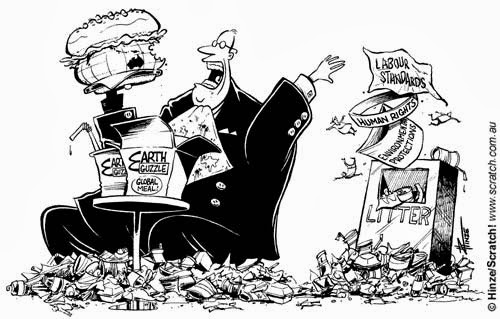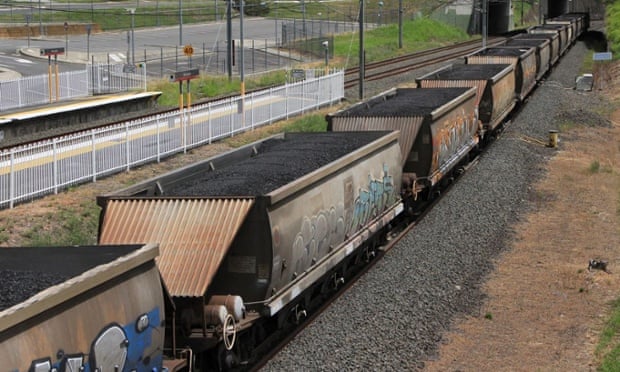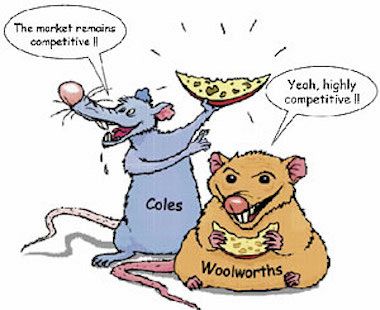Hundreds of donors hidden by Newman’s donations laws
Jan 22, 2015 12:41PM
Campbell Newman’s gutting of political donation disclosure laws means many hundreds of LNP donors can remain secret.
The Queensland election has suddenly focused attention on
that state’s political donation disclosure (or more correctly,
non-disclosure) laws.
Amid controversy over Queensland Labor’s fundraising
practices and access to ministers being sold to raise funds, in 2009
then-premier Anna Bligh elevated Queensland’s political donation
restrictions and reporting requirements to best practice. In 2014,
Premier Campbell Newman mostly neutered Bligh’s reforms.
ABC’s 7.30 last night and particularly The Australian’s Michael McKenna
today focused on how Newman’s 2014 changes to donation laws have
enabled donors to give large amounts — up to $12,400 — in secret, as
well as exploiting the gap between what is legally a donation and what
is a fee for a good or service.
In effect, what Newman did was to “Howardise” the Queensland
laws, mimicking the Howard government’s massive 2005 increase in the
reporting threshold for federal donations from $1000 to an indexed level
that, federally, is now $12,800. Efforts by Labor’s John Faulkner to
reverse the federal changes were blocked by the Coalition and Steve
Fielding, and later by his own colleagues. Instead of being reversed,
the Howard changes metastasised into Queensland.
The difference as a result of Newman’s gutting of the Bligh
laws is remarkable. Compare the disclosure reports for the Liberal
National Party for 2012-13 and 2013-14. For a start, there’s only one
for the latter year, compared to two for the former, because reporting
is now annually, not every six months. The two 2012-13 reports (here and here)
show the LNP declaring revenue of just under $17.8 million for the full
year and include a total of 61 pages, many of them closely printed,
detailing hundreds of sources of funding. Much of this funding involved
has nothing to do with donations or even pseudo-donations like
subscriptions to “business forums” or purchases of dinner table spots
for access to ministers — it includes candidate nomination fees, tax
refunds, funding from the Queensland Electoral Commission and
allocations from one section of the party to another. But it provides a
comprehensive description of where nearly all LNP funding, apart from
contributions below $1000, has come from.
The 2013-14 report,
however, has just six pages of detail for the LNP’s declared $18.64
million in revenue, covering declared donations and other reportable
payments totalling $7.5 million. What’s missing is many hundreds of
donors and businesses that have given the LNP between $1000 and $12,400
in 2013-14 — in just the six months from January 1, 2013 to June 30,
2013, the LNP’s return shows over 900 donors contributing amounts within
that range — excluding non-donation funding. No one within that range
was reported in 2013-14 by the LNP; they can now contribute in secret to
Newman’s government.
This is the multimillion-dollar credibility gap at the heart
of Newman’s political donations laws. The gap is significantly less for
Labor: like federal Labor, the Queensland Labor Party reports all
contributions above $1000 regardless of legal requirements, so its
returns still provide copious detail about sources of (mostly union)
funding. But Labor does so on a voluntary basis, and it could cease to
do so at any time. For the LNP, Newman’s laws have hidden from public
view the vast majority of donors, many of whom are seeking to influence
the Newman government to achieve policy outcomes that suit their
commercial interests.
As the pre-Bligh Queensland laws demonstrated, such lack of
transparency is ripe for exploitation by party mates seeking to obtain
access and influence. If Newman’s changes aren’t undone, history tells
us it will invariably lead to scandal and corruption. And as we’ll see
in coming days, the problem is every bit as acute at the federal level.









